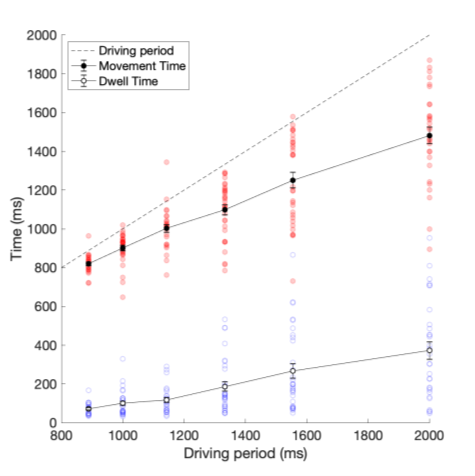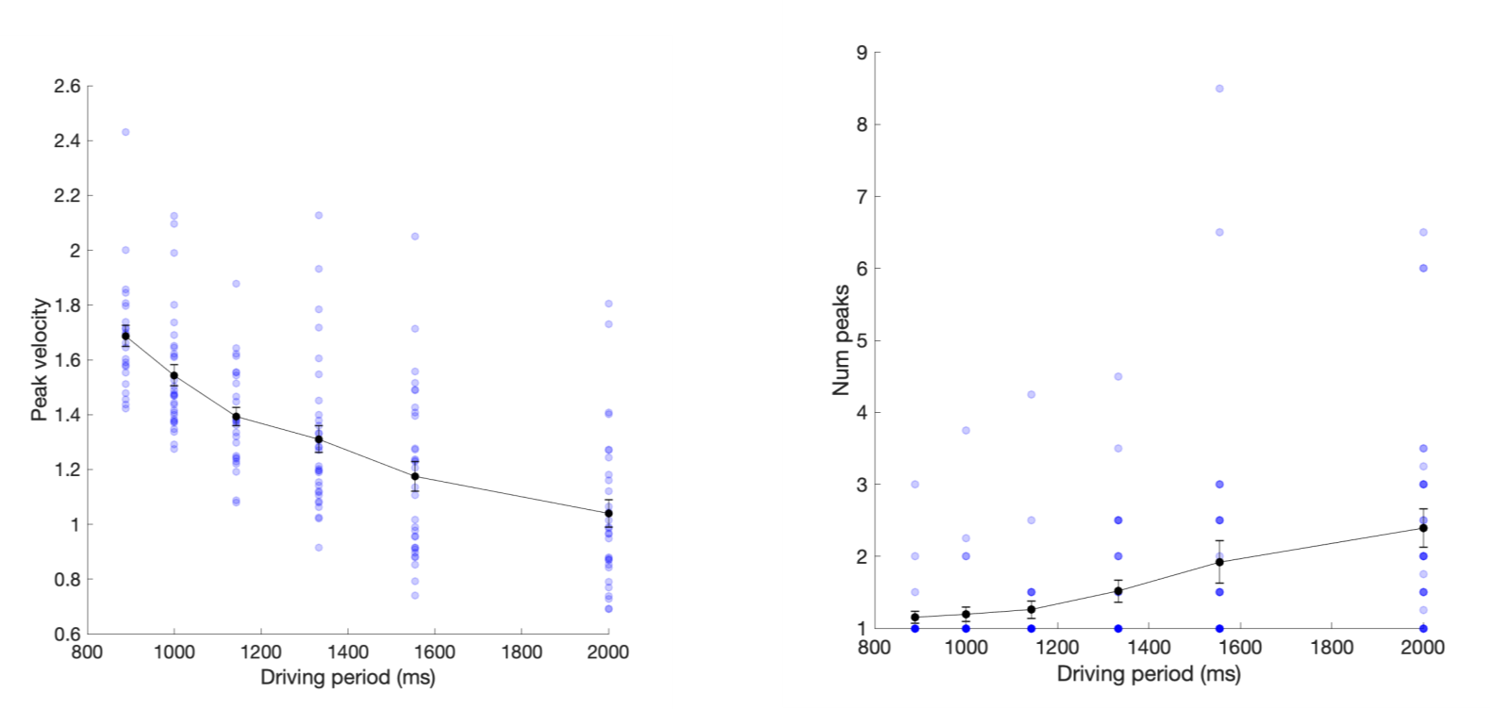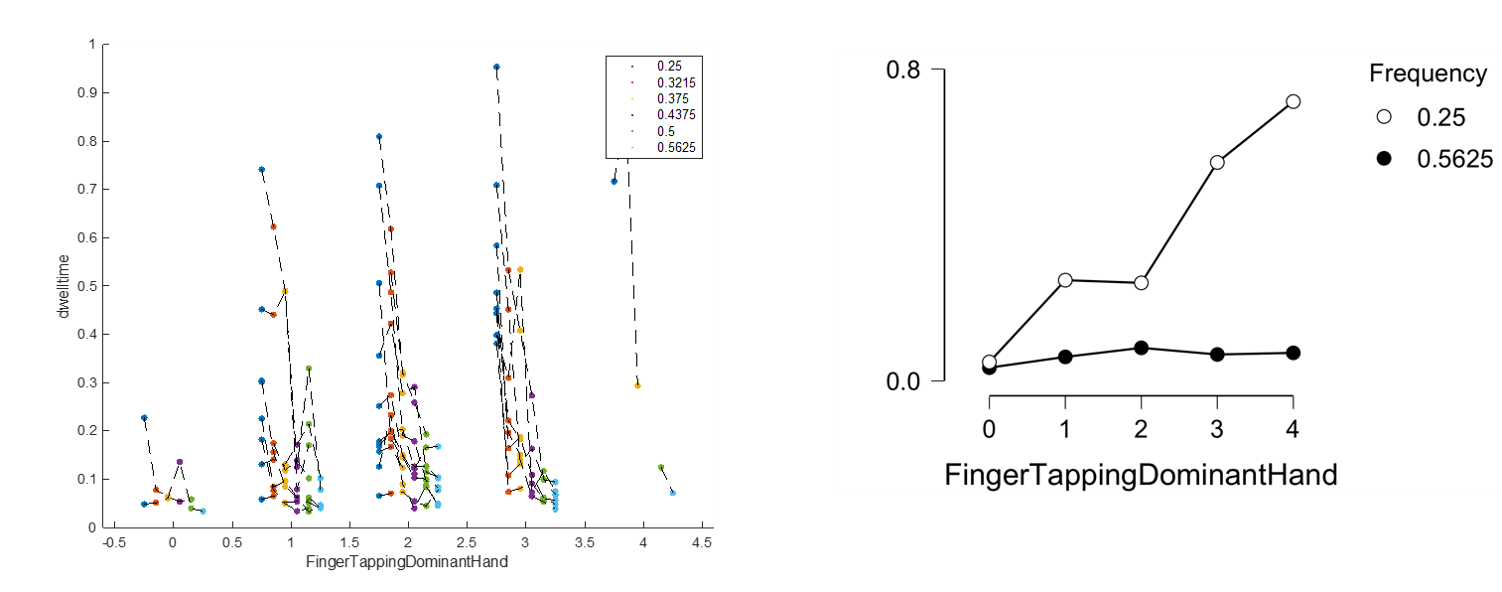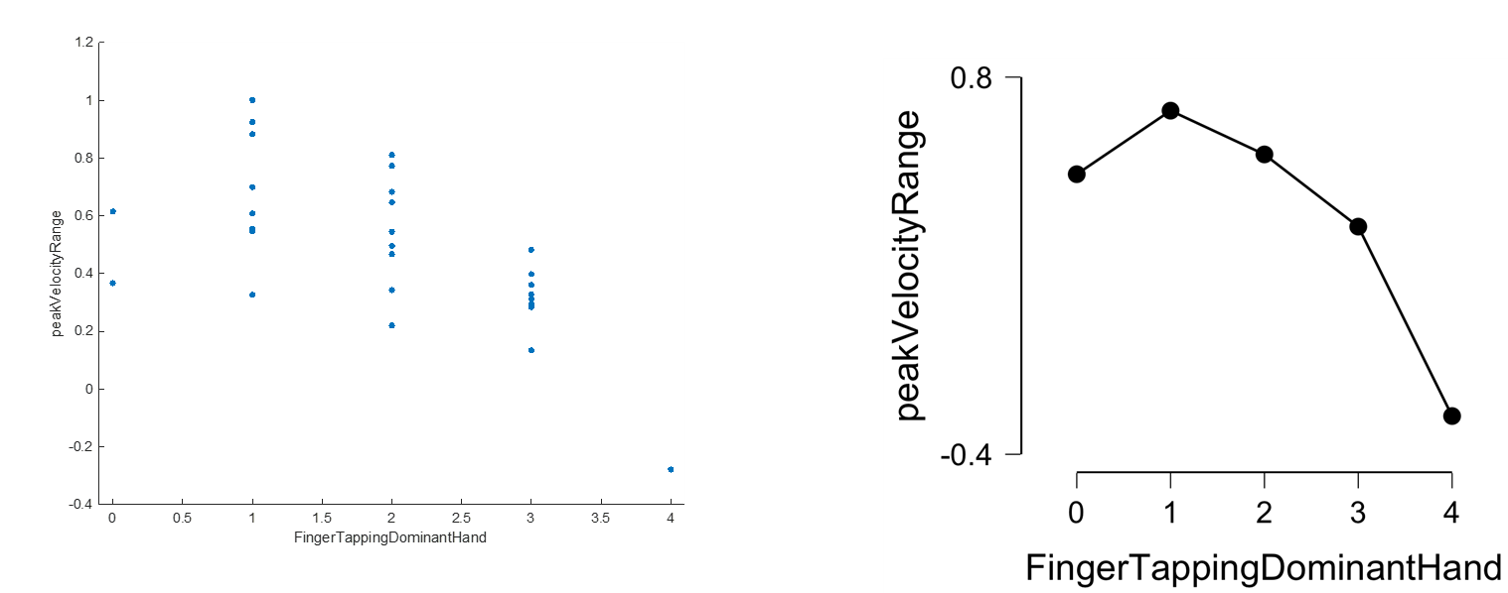Category: Parkinson's Disease: Neurophysiology
Objective: To explore the relationship between disease severity, minimum comfortable velocity and dwell time in Parkinson’s disease.
Background: People find it hard to move smoothly at low velocities and their movement tends to decompose (i.e. show multiple peaks in the velocity profile) unless highly skilled at moving slowly. Bradykinesia in Parkinson’s disease is characterized by hypokinesia, akinesia, impaired rhythmicity and freezing of gait.
Method: We recruited 31 patients (4 not receiving any antiparkinsonian medication) attending the Movement Disorders Institute, Sheba Medical Center. Subjects sat next to a WACOM Cintiq digitizer computer screen and were instructed to move back and forth between two (large) circles (Figure 1) with the digital stylus in time with a metronome beat at 0.25 Hz, 0.3215 Hz, 0.375 Hz, 0.4375 Hz, 0.5 Hz and 0.5625 Hz.
Results: As the driving period (i.e., ideal movement time) increases, on average they spend more time dwelling (i.e., not moving, Figure 2), peak velocity goes down (not linearly) and the number of velocity peaks increases (Figure 3). Dwell time is not the same across groups / frequencies: while for high frequencies (e.g., 0.5625 Hz), everyone has low dwell times, for low frequencies (slow movements), the dwell time is dependent on disease severity (e.g., Finger tapping dominant hand, repeated measures ANOVA, significant interaction: F(4,17) = 4.48, p=0.012, Figure 4). Increased dwell time may be explained by a reduced range of velocities (ANOVA, F(4,23) = 8.741, p < 0.001. [peak velocity range = peak velocity for 0.5 Hz – peak velocity for 0.25 Hz], Figure 5) – whereby patients with more severe disease are unable to produce the slowest movements appropriately.
Conclusion: Here we demonstrate that when instructed to perform slow movements with more severe Parkinson’s disease, patients avoid making these movements. This may be due to increased motor arrests (perhaps a form of freezing of upper limb), or it may be that the lower limit of comfortable slow movements may somewhat paradoxically be higher for these patients.
References: van der Wel, R. P. R. D., Sternad, D., & Rosenbaum, D. A. (2009). Moving the Arm at Different Rates: Slow Movements are Avoided. Journal of Motor Behavior, 42(1), 29–36.
To cite this abstract in AMA style:
S. Israeli-Korn, A. Korakin, N. Vaadia, S. Hassin-Baer, J. Friedman. Rhythmic movements decompose in Parkinson’s disease with worse disease severity at low frequencies: akinesia or impaired ability to move more slowly than comfortable? [abstract]. Mov Disord. 2020; 35 (suppl 1). https://www.mdsabstracts.org/abstract/rhythmic-movements-decompose-in-parkinsons-disease-with-worse-disease-severity-at-low-frequencies-akinesia-or-impaired-ability-to-move-more-slowly-than-comfortable/. Accessed October 21, 2025.« Back to MDS Virtual Congress 2020
MDS Abstracts - https://www.mdsabstracts.org/abstract/rhythmic-movements-decompose-in-parkinsons-disease-with-worse-disease-severity-at-low-frequencies-akinesia-or-impaired-ability-to-move-more-slowly-than-comfortable/





